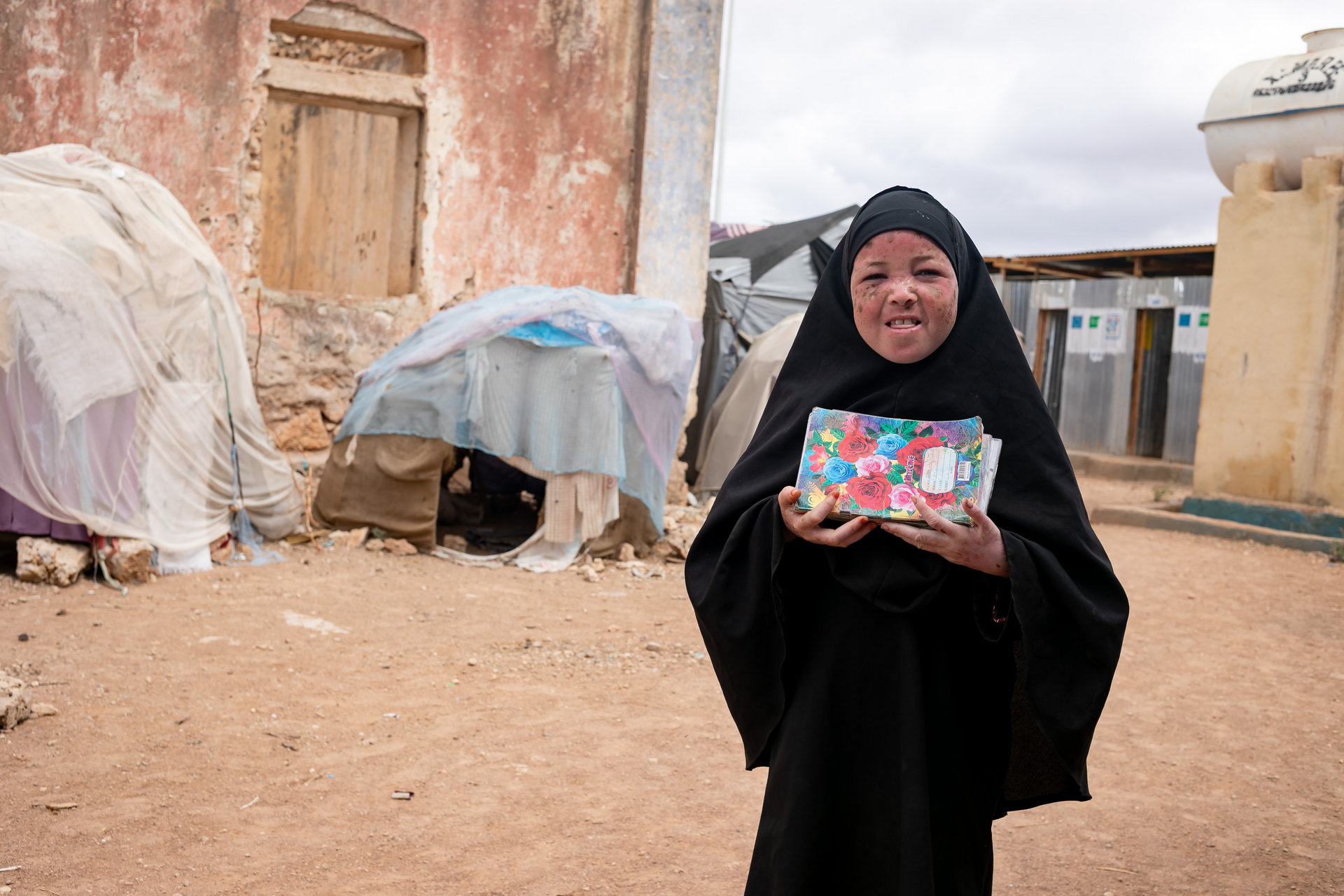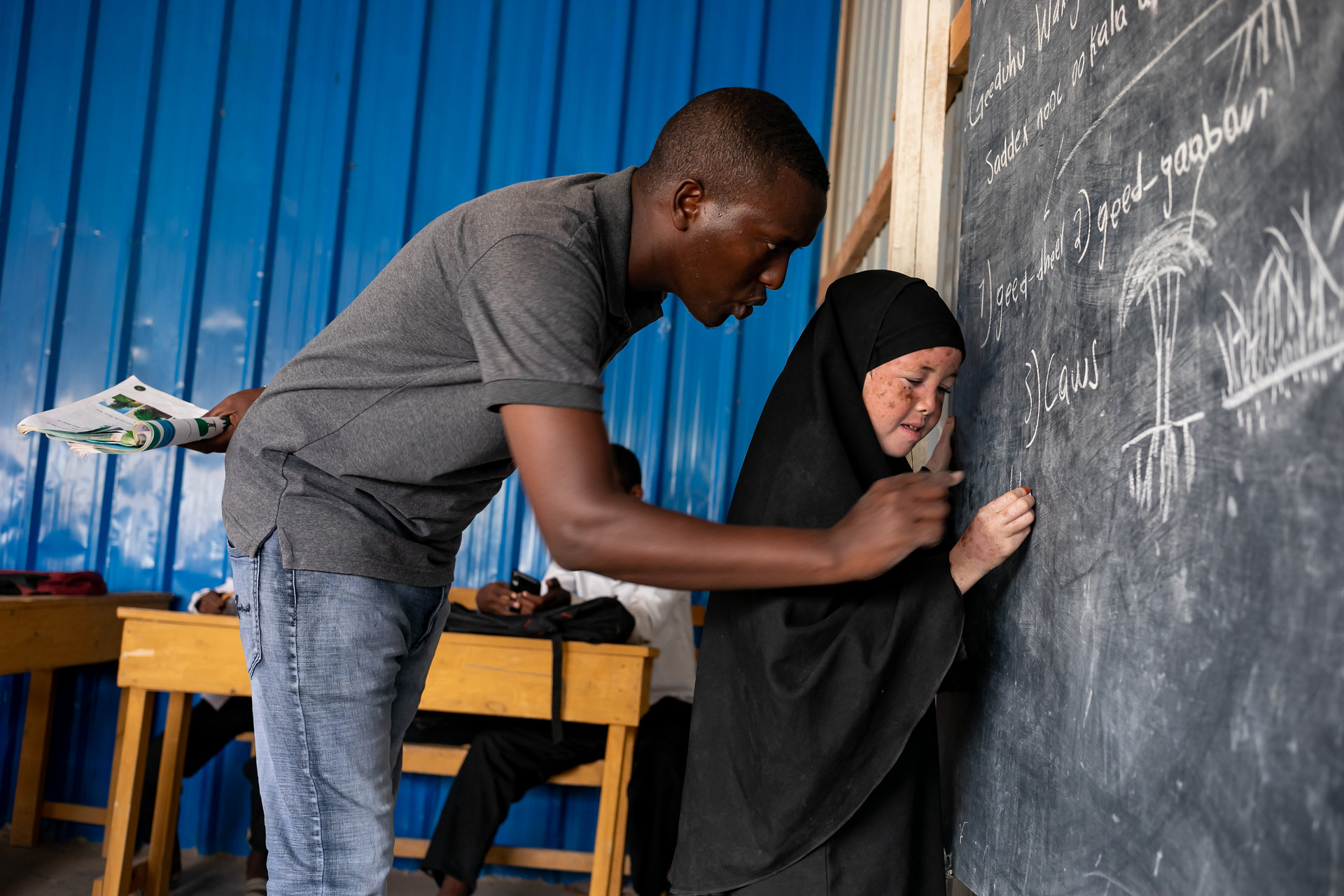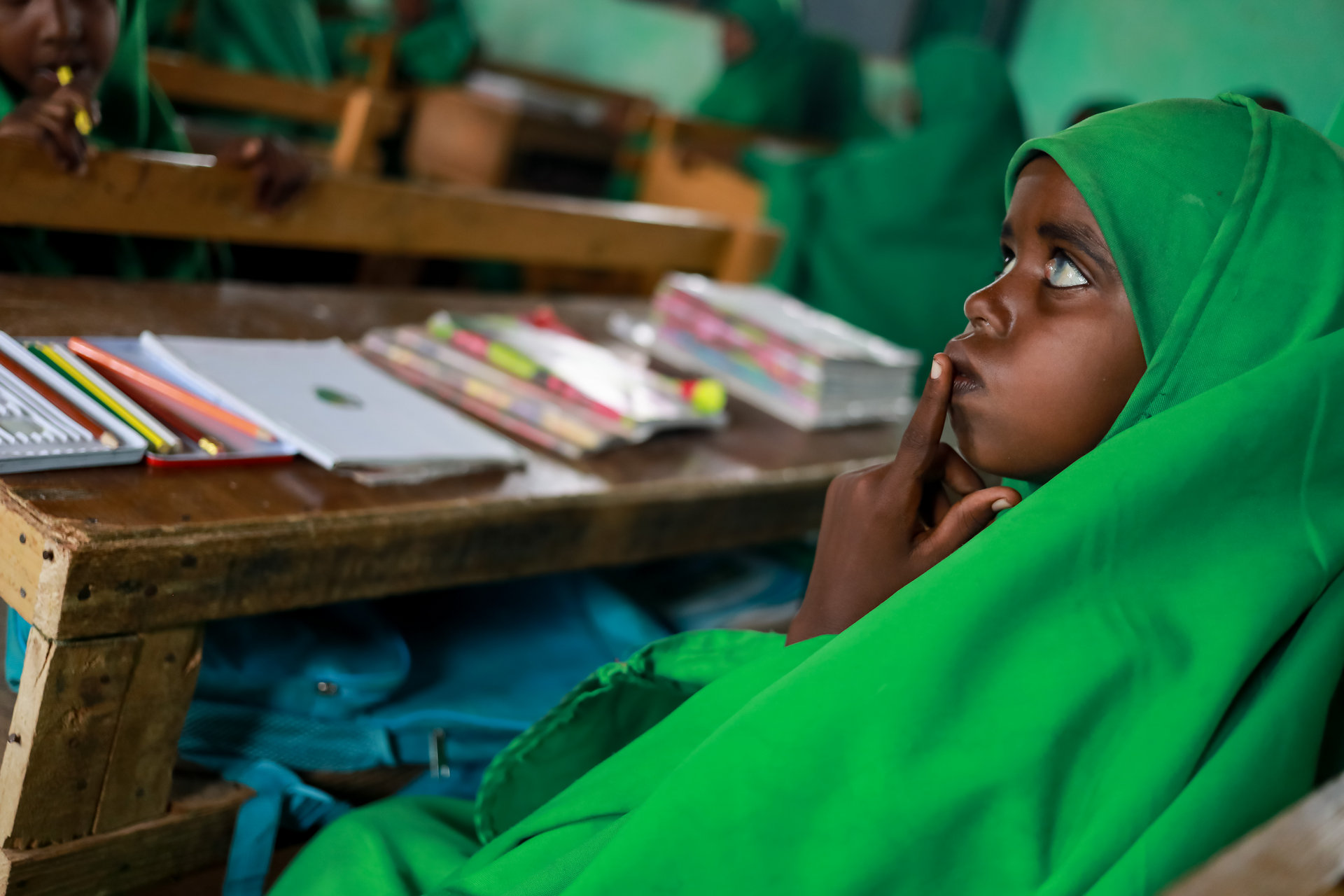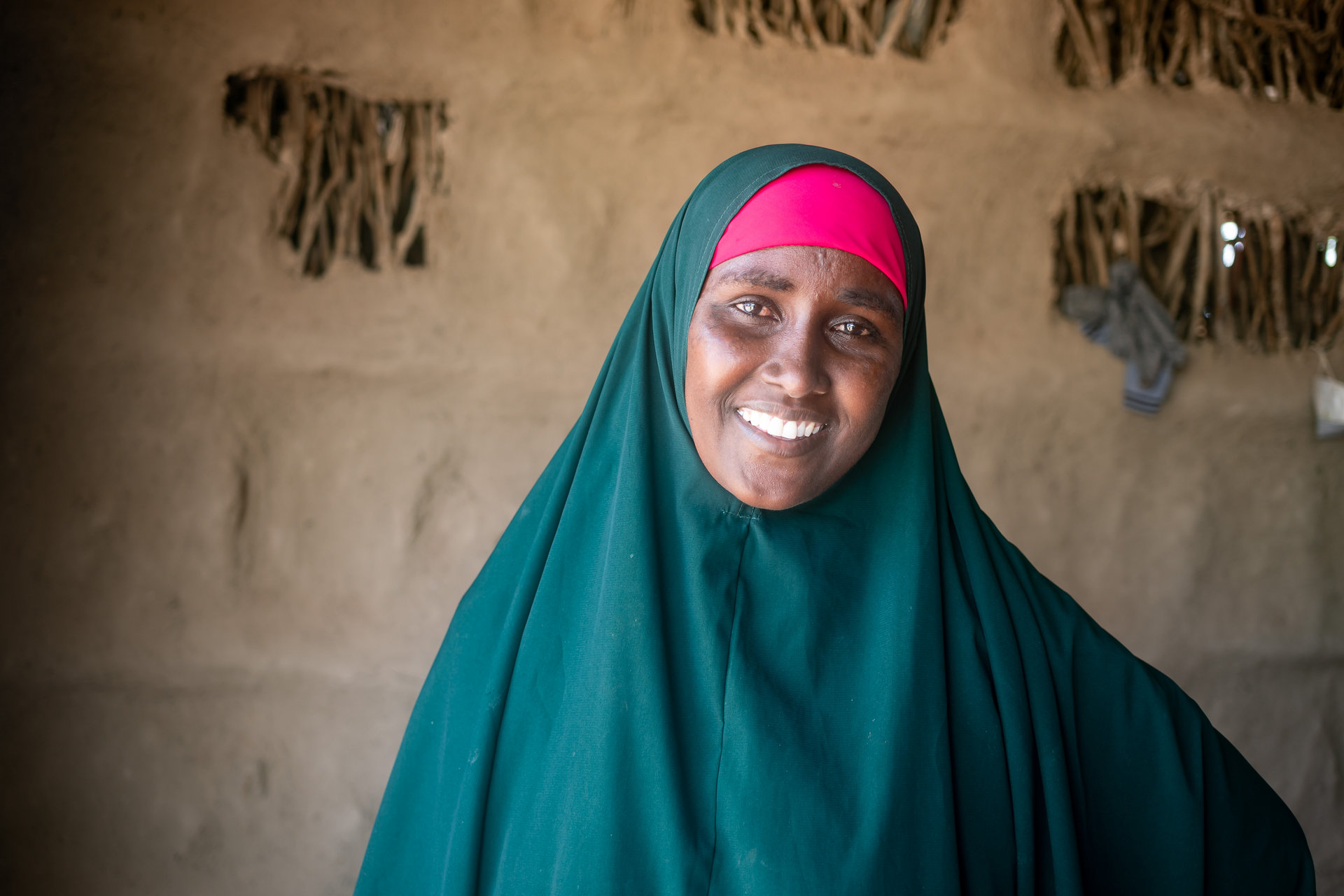22.7.2021
Girls’ education gains ground in Somalia’s hard-to-reach area
Five thousand learners enrolled in school in Hudur in one of the first education interventions in the area, supported by EU Humanitarian Aid (ECHO). Almost half of the learners were girls.
Parents in Somalia’s rural areas have traditionally not valued education, and if the opportunity exists, families typically send only their boys to school. As a result, the interventions in the education sector were few when FCA launched its program in six schools in Hudur in June 2020.
FCA started implementing the education project funded by EU Humanitarian Aid (ECHO) by launching mass awareness-raising campaigns on the importance of education. In addition, community meetings and the forming of local education committees increased the engagement of people.
Child marriage is one of the most significant barriers to girls’ education in areas such as Hudur. Becoming a caretaker of the family and a mother can end their chances of progressing at school.
Poverty is another obstacle to sending children to school. However, within this program, education is free, and the quality of learning is ensured through teacher training and quality learning materials. As a result, the project reached its goal of enrolling five thousand learners. The learners include 2,387 girls, almost half of the total. To keep girls in school during menstruation, 806 girls received monthly sanitary kits. In addition, older boys and girls were given gender-sensitive recreational materials.
Muna Mohamed Haydar, 17, washes her hands outside the school. She says, “My teachers are good and teach well. Math is my favorite subject because I enjoy doing calculations. It is important for us to attend school. Education will help us build a bright future.”
Teacher Lul Mohamed Nur is responsible for the protection and safety of the students. She encourages girls to receive good education. Today, the number of girls is higher than the number of boys in my school. She tells that, “we have achieved this after conducting relentless awareness in the neighborhood, telling families the importance of sending their girls to schools. We give special attention to learners with disabilities. They are often allocated seats at the front of the classroom.”
Hawa Isak Warsame, 16, tells, “my parents couldn’t afford to pay for my school fees but since it is free and they give us uniforms and other learning materials. I am keen to take advantage of this opportunity to educate myself.” Her favourite subject is English and she would like to work for a humanitarian organisation in the future. She also praises the safety of the school: “If one of the learners feel threatened they can submit their complaint into the box FCA has brought us. This really given me and my classmates a strong sense of safety.”
Suleqo Hassan Adan, 10, tells, “I like math because it is easy for me. I want to become a well-known engineer and rebuild my country or a teacher to help those in need in the community.” She also has a strong opinion about equality: “Education is important for everyone whether be it a boy or a girl. Parents must give equal opportunity to their children.”
Hamaro Mohamed Nur is Suleqo’s mother. “My daughter has been attending the school for a year. I always encourage her to go to the school and learn something. At first she used to resist but now she got used to it and she likes going to the school. Her interest has increased since she received uniform and learning materials. She has a lot of energy for her books now. My daughter is a child with special needs, she cannot see well due to her albinism. She told me the teachers make her sit next to the blackboard so that she sees what is written on the board. She really likes her teachers.”
Mohamed Hassan Abdirahman teaches English to internally displaced pupils. “I was motivated by the need of my community. There was no school in the area before we came up with the idea of establishing this learning center. All of the children here were out of school, so I decided to take action along with like-minded friends. As for the learners with disabilities, we pay special attention to them. We try to listen their demands and protect them from bullying. Safety and protection of the students is of high priority for us” and adds that it can protect girls from early marriages.
Zainab Abdullahi Ahmed, 10, goes to school for accelerated basic education (ABE) and says that she enjoys learning new things. “My teachers help me a lot. I don’t feel any problems attending the classes.” She also wants to help others in the future: “When I grow up, I want to become a doctor.”
Maryan Warsame tells that her child has been attending the school for five years. She says that, “as a parent, I am grateful for helping to educate my daughter. Here we consider teachers as second parents and indeed they are second parents because they treat our kids as their own.” She tells that, “I have both daughters and sons and I send all of them to school, but I am more confident in my daughters. An educated girl will always be helpful to her parent.”
Bashir Moallin Mohamed, 18, says he is very ambitious about his education. He praises the teacher for being kind and highly qualified. “English is my favorite subject because I am good at the grammar. I hope to speak good English soon. I want to become a teacher like my teachers and educate the the people in need in the community.”
Text: Mohamed Aden and Nora Luoma
Photos: Ismail Taxta



